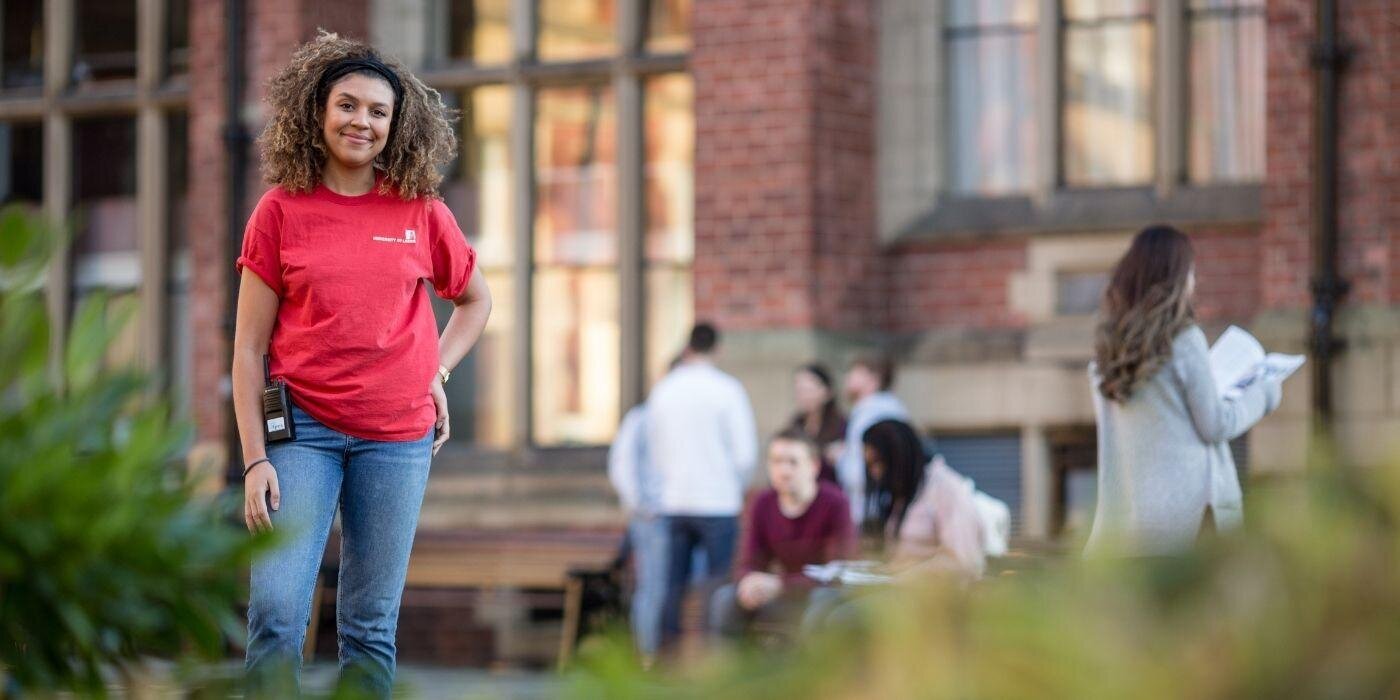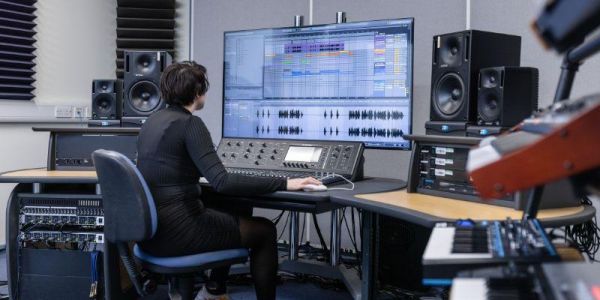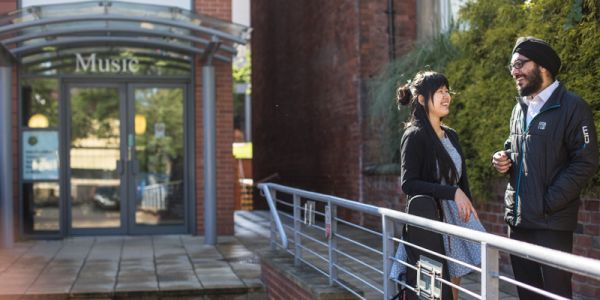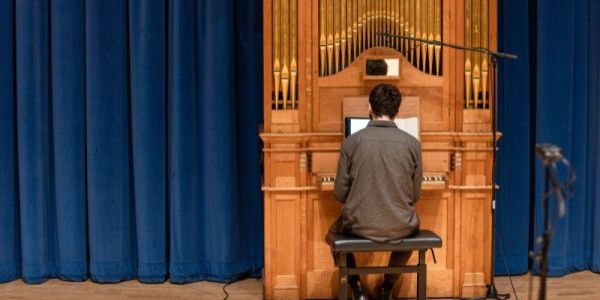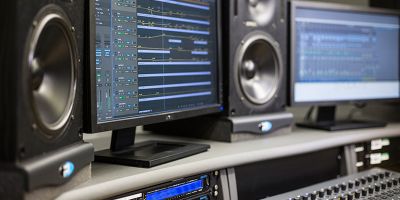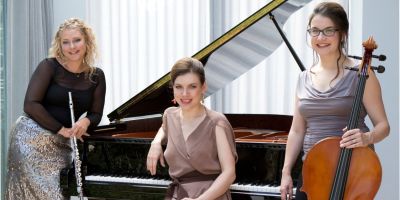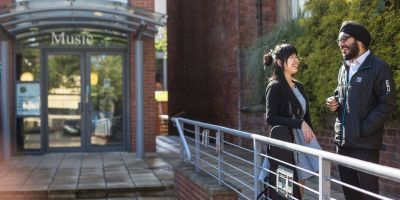School of Music
Take a tour
Join School rep, Georgie, on a tour of our building and its facilities.
Discover our School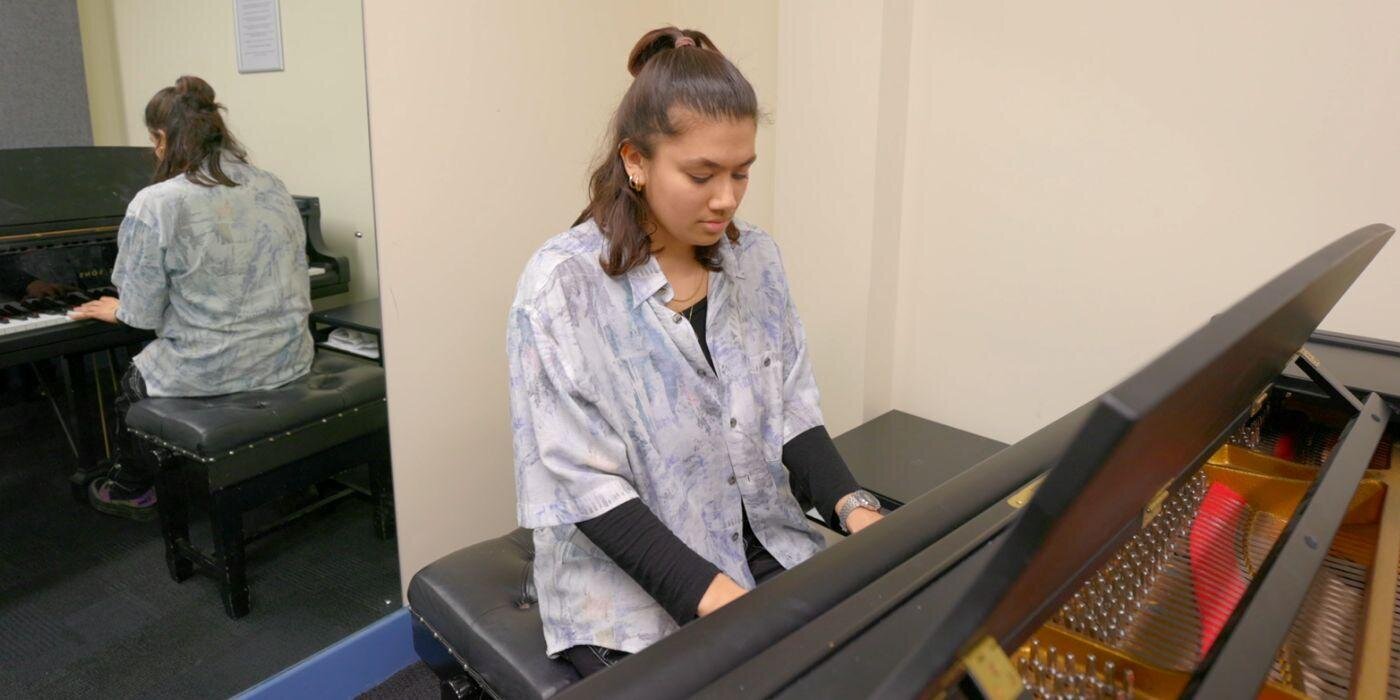
Make your Masters a reality with funding
Join our live online event on Wednesday 5 June, 12- 1pm to receive expert advice on how fund your Masters and invest in your future.
Book your place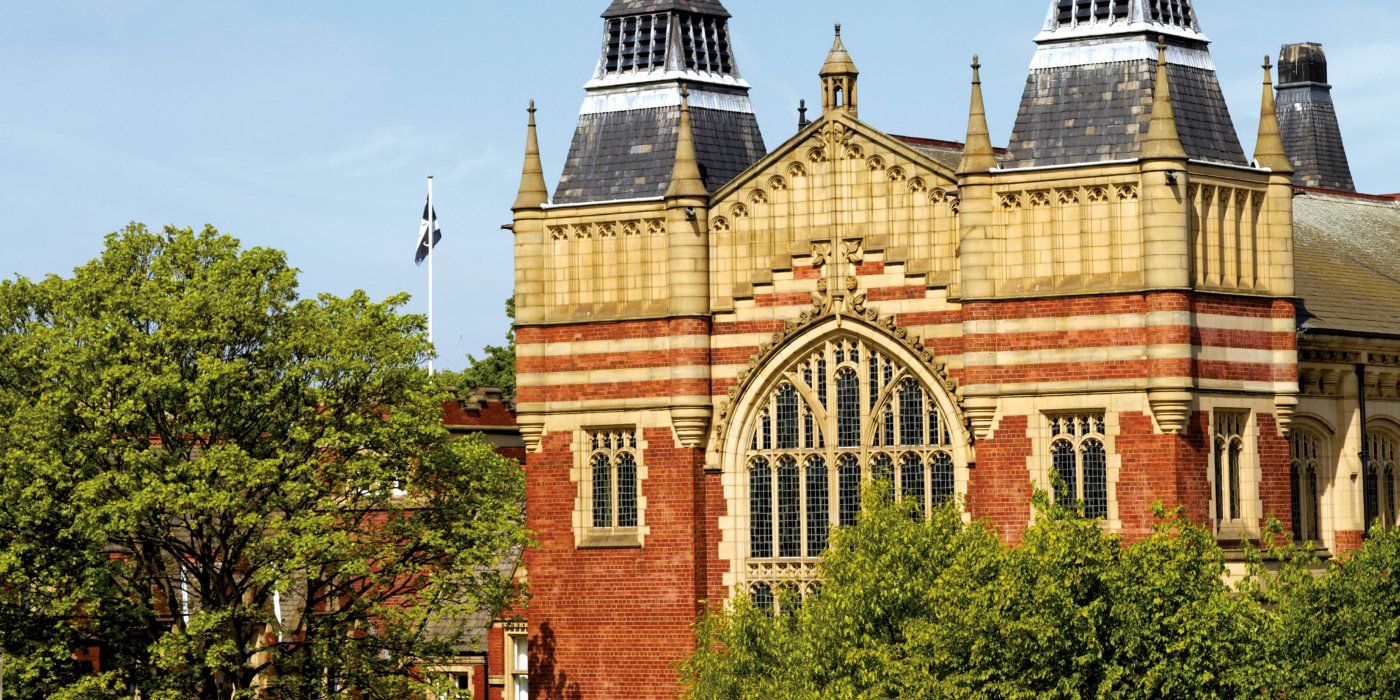
School of Music
The School of Music is one of the largest music departments in the UK and we welcome undergraduates, postgraduates and researchers from across the world every year.
We have over 25 members of staff with a wide range of specialisms and interests, and a rotating cast of instrumental and vocalist teachers.
We have All-Steinway status, enriching the experience of our students and attracting performers and academics from across the globe.
We work with organisations across the city and the country to deliver outstanding events for students, staff and the public.
The University is the Principal Partner for the Leeds International Piano Competition and hosted events for the Competition in 2021.
The School of Music is actively working to build a diverse and inclusive school community that supports all staff and students. Our Equality and Inclusion Lead is Dr Johnathan Price. Acess staff and student resources and find out more about our current projects.
44th
for Arts and Humanities
QS World University Rankings by subject 2023
5th
for Music in the UK
Complete University Guide by subject 2023
93%
"world leading" or "internationally excellent"
Submitted impact case studies - REF 2021
Studying with us
Undergraduate
During your time with as an undergraduate student you’ll experience a wide range of opportunities in which you can express your creativity, intellect and emotions.
More on UndergraduateMasters
As a postgraduate student you’ll experience research-based teaching on one of our six masters courses, and work alongside academics who are leaders in their fields.
More on MastersResearch degrees
During your PhD you can experience a supportive, stimulating and challenging research environment alongside academics who share your passion for your subject.
More on Research degreesOur research
Research in the School of Music brings together internationally recognised scholars, performers, and composers.
Our world-leading research cuts across four themes: Music as Culture, Music and Science, Making Music and Pedagogic Research.
We have a strong interdisciplinary ethos and actively collaborate with other schools in the University to enhance our teaching and research, as well as with universities and industry around the world.
Distant Streaming - Music Research Colloquia
Thursday 9 May 2024, 16:30 - 17:30
More on Distant Streaming - Music Research ColloquiaMake your Masters a reality with funding
Wednesday 5 June 2024, 12:00 - 13:00
More on Make your Masters a reality with funding

